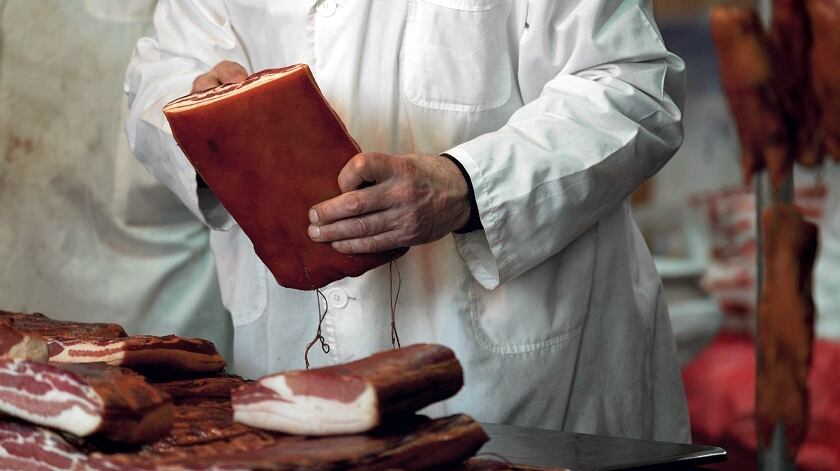With the main sales channels still belonging the food service sector, the retail market is being largely ignored, despite its high potential for manufacturers.
That’s according to research by Chinese analyst CCM of the cheese market from 2015-16. It found that the main sales channels were still hotels, catering companies and bakeries.
The retail sector, meanwhile, only accounts for 24% of overall sales, though its future looks rosy. That’s because, according to to a recent report by market researcher Mintel, retail sales will rise at an annual rate of almost 13% until 2021 to 38,830 tonnes.
Indeed, the market could one day resemble neighbours like Japan and Vietnam, where retail market potential is being realised to the point that it accounts for 41% and 73% of the countries’ overall cheese markets respectively.
And as China’s first- and second-tier cities become accustomed to cheese as an ingredient, CCM believes that the biggest opportunities for the smartest growth can now be found in third- and fourth-tier cities, like Wuhan, Chengdu, (halal capital) Urumqi and Fuzhou.
Bakeries and western-style quick-service restaurants in particular have been witnessing a surging demand for cheese from their customers.
Dairies that had not previously specialised in cheese, meanwhile, have expanded in growing numbers into the cheese business.
Yet, according to CCM, about 90% of China’s cheese is still imported—equivalent to some 90,000 tonnes yearly.
New Zealand currently supplies a little over half of China’s cheese demand, worth over US$216m. Australia follows, shipping almost 20m kilos into China last year, with America the third biggest importer.
Last year’s figures by China Customs showed that European cheese producers had been lagging behind their Australasian cousins in exploiting the cheese market.
At the same time, China has been exporting its own cheese to several countries, with the main destination being Hong Kong. Italy was found the be the surprise second biggest destination for Chinese cheese, though volumes are low: fourth-placed Malaysia received total of 65kg of its cheese last year, according to China Customs.
A jump into the cheese business could be an effective way out of the sluggish milk market for many dairy manufacturers in China. While the purchase price of milk has constantly been dropping in the last years, the cheese business has shown a promising upmarket diversification, according to analysts.
A few of these manufacturers have managed to gain a decent share of the overall cheese market by delivering to brands like McDonald’s and German processor Milkana. According to CCM, Bright Dairy and Beijing Sanyuan Food have been taking advantage of this opportunity.
Other companies have been focusing their efforts on developing new cheese products as a means to gain their share in a thrusting market.
Yili, for example, has been tailoring a cheese for Chinese tastes, though a launch date for this product is still unknown.
Mengniu is also expected to launch its own products to complement its cheese sticks for infants, its only line in this market. Ground Food also wants to open a cheese processing factory in spring 2018, which will be capable of producing about 40,000 tonnes of cheese products a year.
More stories from China…
Shanghai to test officials and food employees to hammer home new regulations
Food safety officials and industry staff in China’s commercial capital will start being tested on new food safety laws, according to officials from the Shanghai Food and Drug Administration.

Shanghai officials will face demotion if they do not know food safety regulations well enough, after the city’s food regulator announced that civil servants and food industry employees would be examined on the basis of their knowledge of legislation.
Companies will be scrutinised more frequently when the new regulations are implemented on March 20, the SFDA added. They will first be warned, then fined, if they fail to follow the food code. In serious instances, their business licences will be revoked.
The new regulation carries a lifetime ban for operators convicted of food safety crimes and a five-year ban for those whose licences have been revoked.
The SFDA has trained staff from some hundreds of food companies, including those manufacturing high-risk products like meat, dairy, seafood and infant food.
“We have a database of about 1,000 questions about food safety law and regulation. They can do the tests on WeChat according to their convenience,” Chao Qiangguo, director of the SFDA’s food production department, told Shanghai Daily.
“Those involved in food industry must understand the regulations. If all the companies understand and follow the regulations, we can ensure safety.”
There are some 200,000 food companies across Shanghai, all of which have been ordered to brief and train their staff before the regulator begins testing at an unnamed date.
